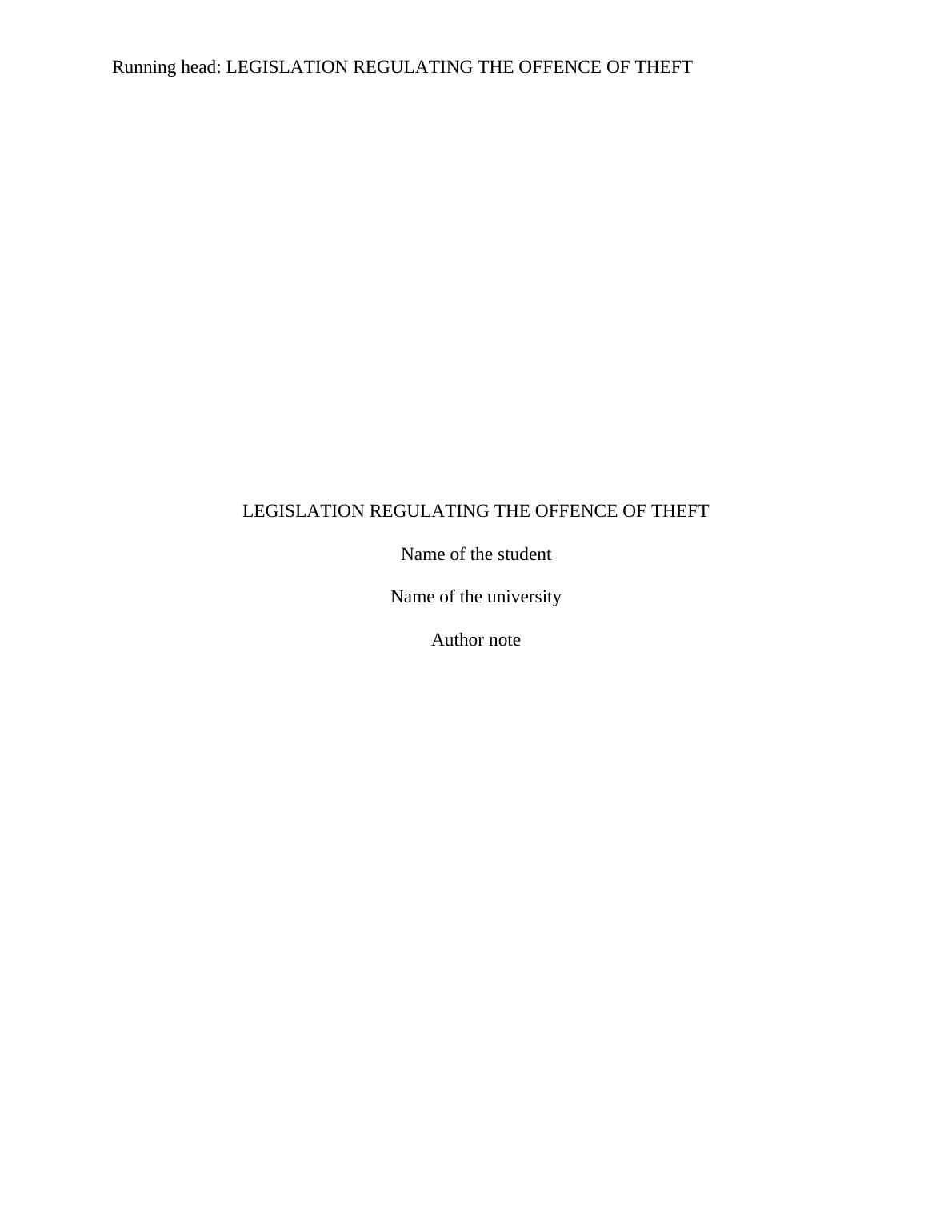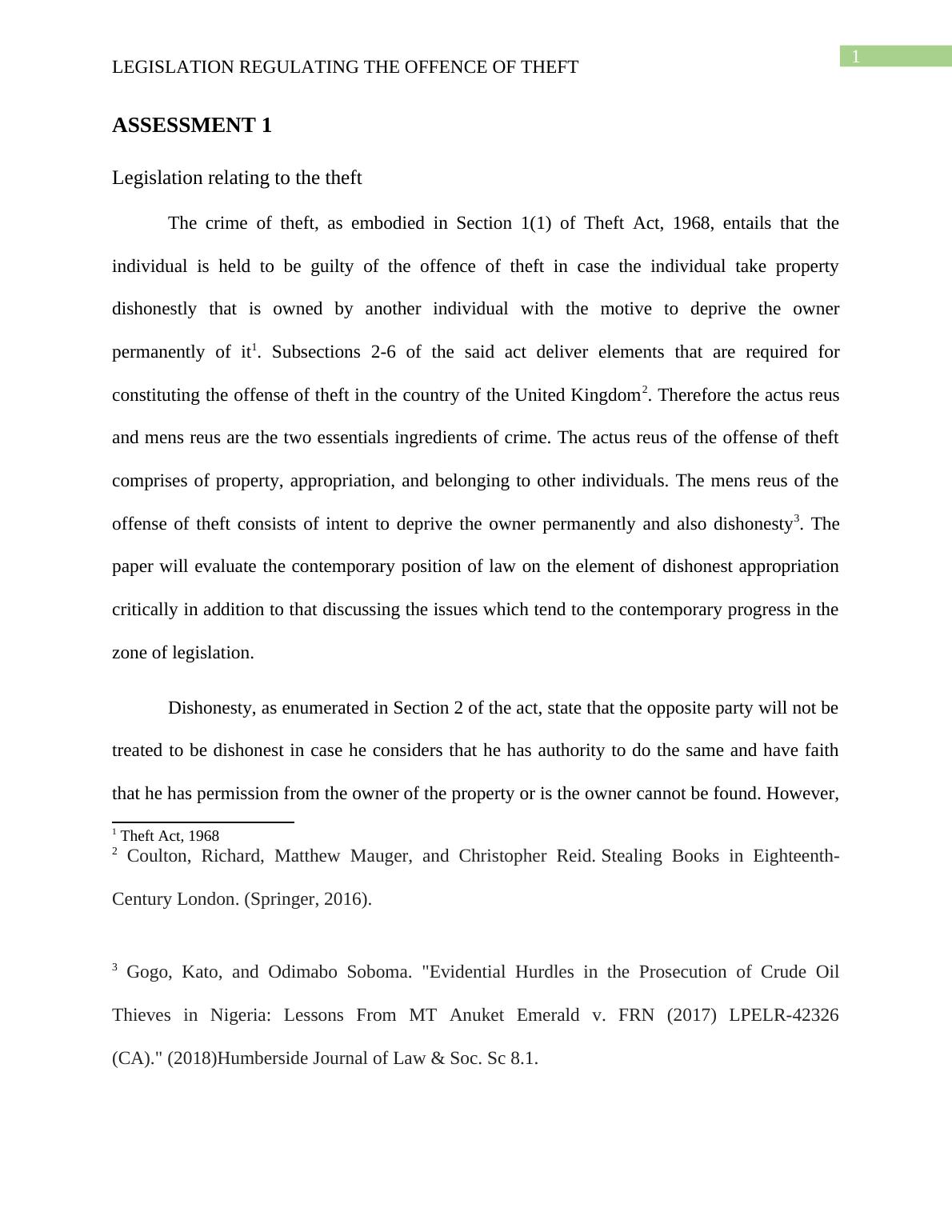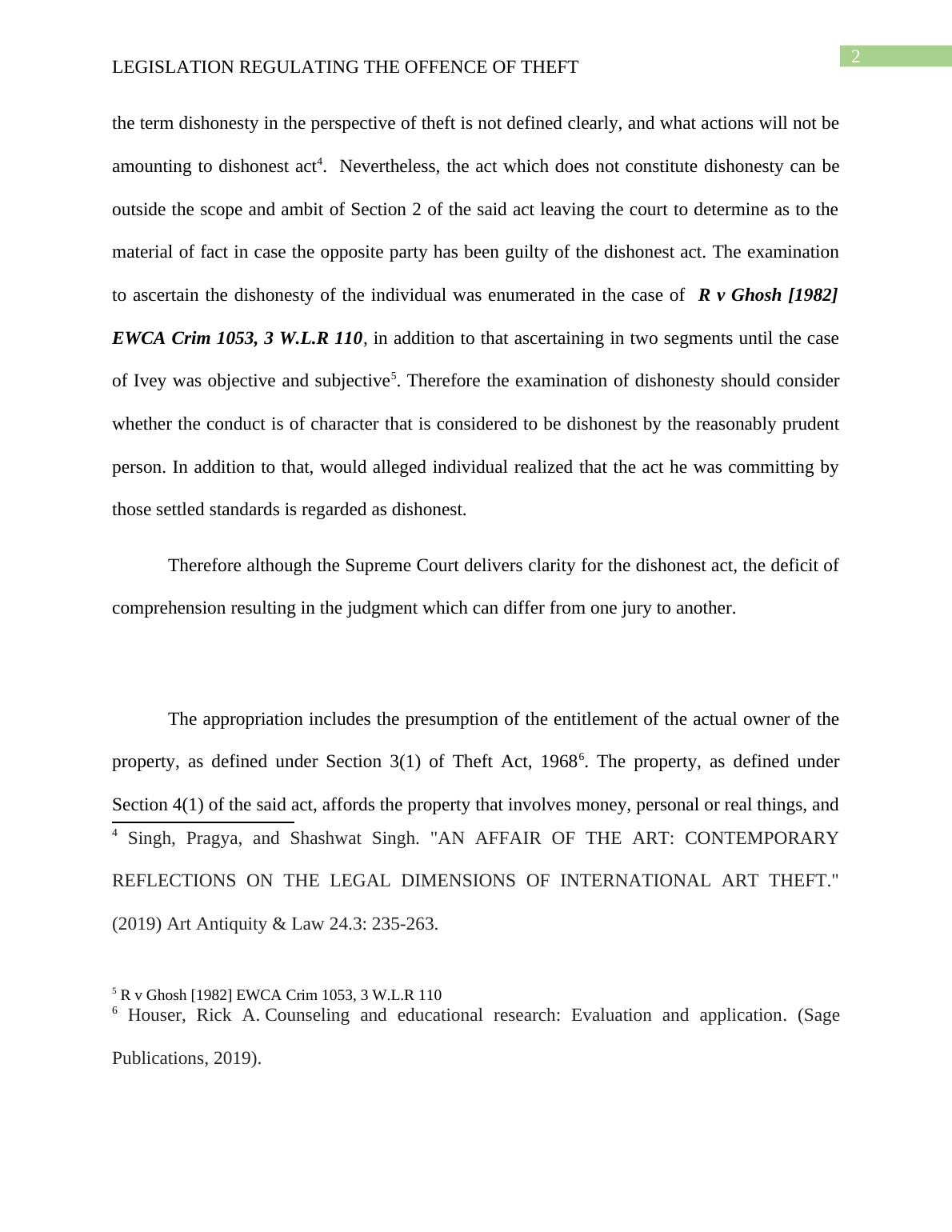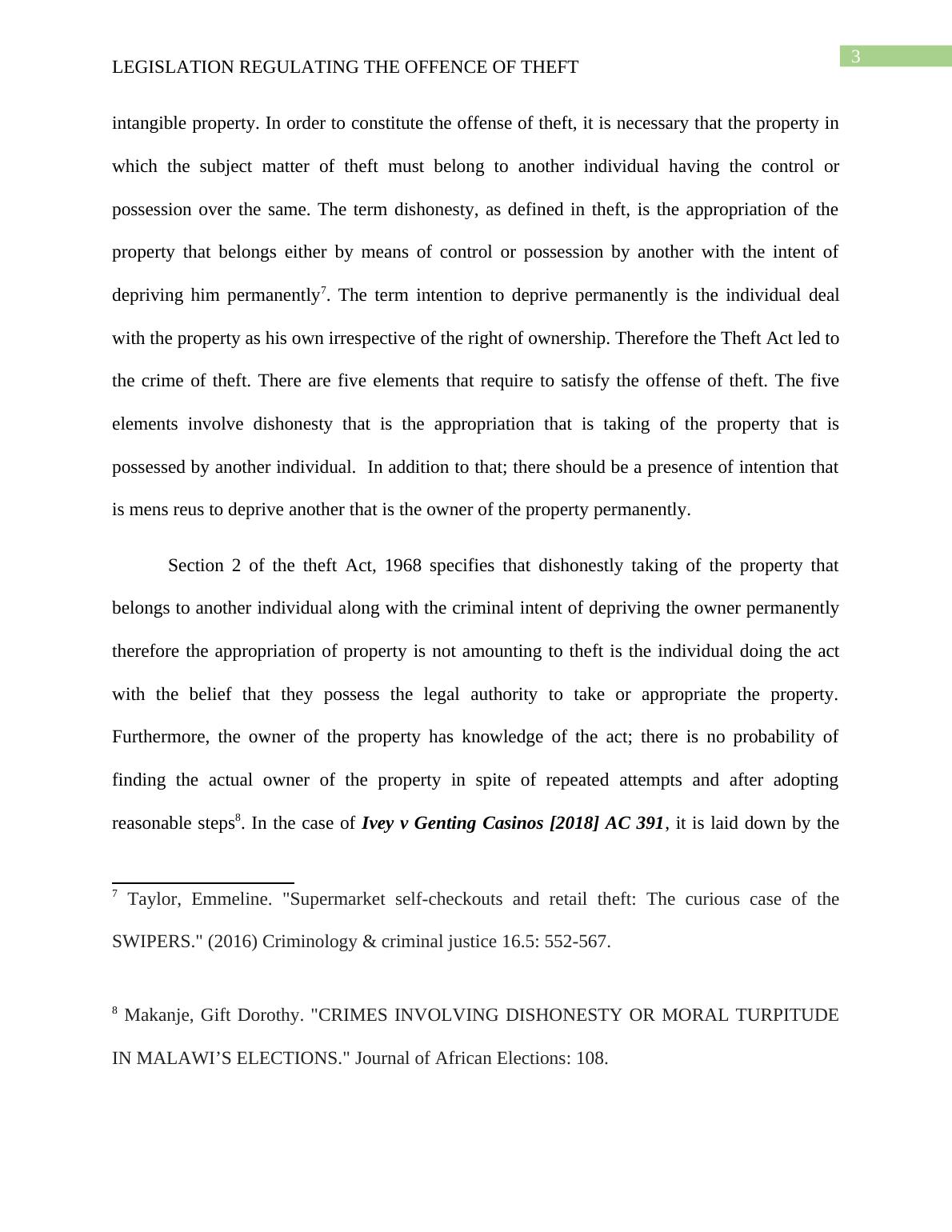ASSESSMENT 1 Legislation relating to the theft
12 Pages3018 Words377 Views
Added on 2022-08-19
About This Document
LEGISLATION REGULATING THE OFFENCE OF THEFT 10 10LEGISLATION REGULATING THE OFFENCE OF THEFT LEGISLATION REGULATING THE OFFENCE OF THEFT Name of the student Name of the university Author note ASSESSMENT 1 Legislation relating to the theft The crime of theft, as embodied in Section 1(1) of Theft Act, 1968, entails that the individual is held to be guilty of the offence of theft in case the individual take property dishonest
ASSESSMENT 1 Legislation relating to the theft
Added on 2022-08-19
ShareRelated Documents
End of preview
Want to access all the pages? Upload your documents or become a member.
Property Offences - Assignment
|12
|3956
|241
Reforming Theft: Taking Without Consent
|7
|1347
|22
Criminal Law: Theft and Fraud
|11
|2512
|54
Essay on Criminal Law
|9
|2912
|265
Criminal Law Assignment - ACTUS REUS
|10
|2912
|542
Foundation of Criminal Law: Case Scenario of Theft and The Theft Act 1968
|6
|1848
|155




